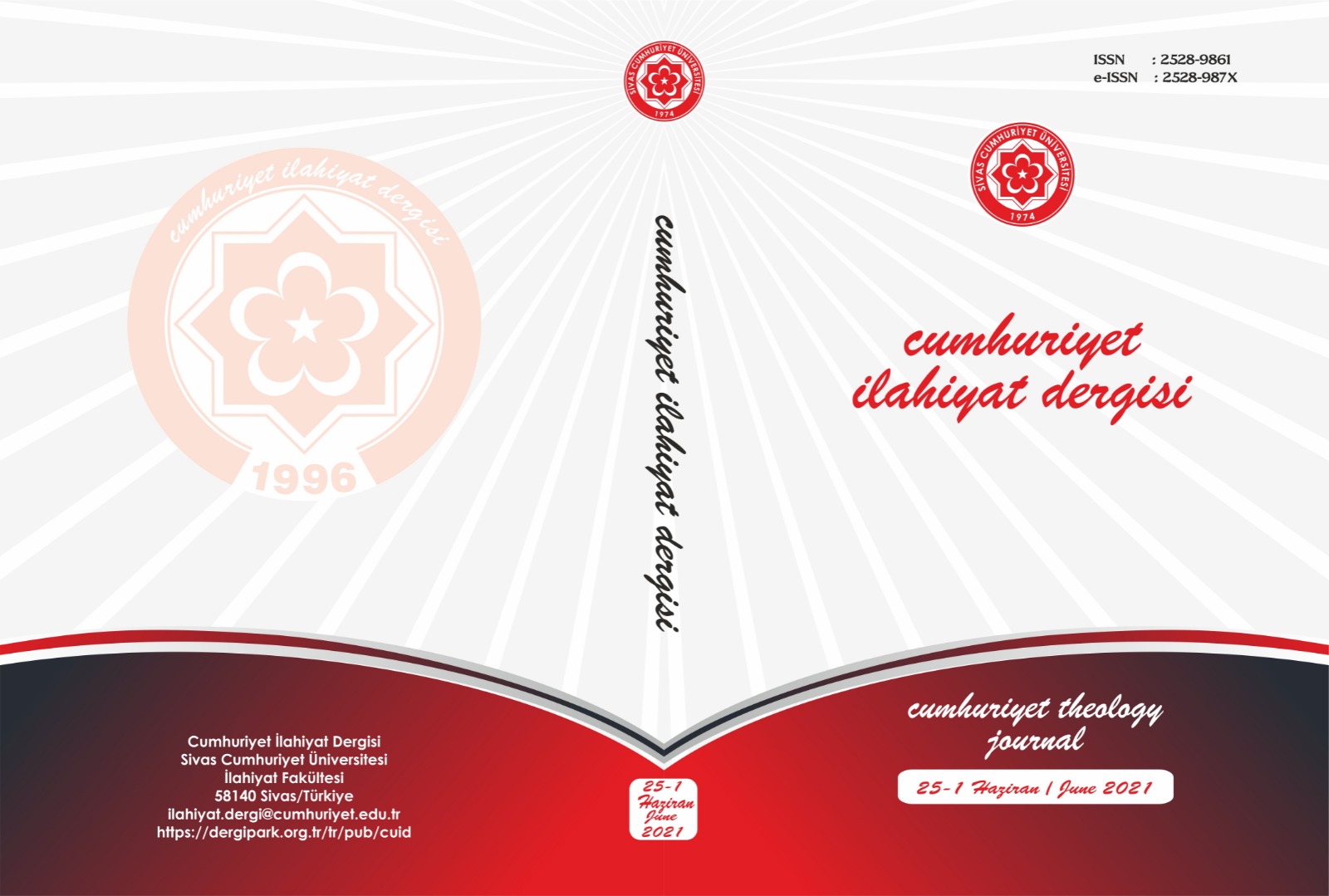Kur’ân’da İnfak Kavramı Bağlamında Sosyal Yardımlaşma
Social Assistance in The Context of The Concept of Infāq in Qurʾān
Author(s): Osman TaştekinSubject(s): Education, Theology and Religion
Published by: Cumhuriyet Üniversitesi İlahyat Fakültesi
Keywords: Religious Education; Poverty; Social Assistance; Social Solidarity; Infāq;
Summary/Abstract: The purpose of this study is to reveal the function of the concept of Infāq, which is included in the terminology of the Qurʾān itself, in social assistance and solidarity. Poverty has always been one of the social problems from past to present. Although it is analyzed differently in each society via different criteria, poverty generally refers to the condition in which a person lacks the basic necessities for a minimum living standard. Unfortunately, millions of people starve for basic biological and social needs such as nutrition, shelter, education, health, and even water. This is a shame for the humanity. There are both international and national charities working to reduce the misery and poverty. However, due to socio-economic and structural problems such as globalization, disproportion in income distribution, unemployment, overpopulation, economic crises, lack of social security systems, and wars, poverty rises gradually and it is still one of the major social problems needed to be solved. Islam which is the last one of Abrahamic religions and its holy book Qurʾān consider social cooperation and solidarity pretty important within the context of Infāq and hold the believers responsible for the organization of social life. Infāq is an umbrella concept in the Qurʾān, referring to all expenses and cooperation in the name of Allah and it is one of the main qualities of believers. Infāq, which includes other forms of cooperation such as obligatoryalms (zakāt) and charity (ṣadaqā), enables a person to share his tangible values with those who have worse life conditions than himself. In this way, the Quran aims to promote human relations and thereby enhancement and peace in the society. In other words, Infāq aims to eliminate social injustice which refers to social and economic inequalities, to protect the economically weak people against the difficulties in life, and thereby, to maintain economic and social stability. Helping the needy is a powerful path toward having spiritual peace, removing selfish feelings, and keeping emotional wellbeing. People with good mental health will be able to build more humane relationships with others. It is obvious that Infāq would play an important role inbuilding a sense of fellowship and trust. A wealth of person who shares his wealth with the poor will be deemed legitimate by the needy people. Thus, the needy people would be freed from negative feelings and behaviors such as jealousy, incapacity, hatred, bullying, and hostility, and feel a sense of fellowship and gratitude towards those who have better life conditions. One of the most important reasons for robbery, extortion, purse-snatching, and etc., which are currently occurring more frequently, is economic deprivation. Considering the fact that this kind of incidents takes place more frequently in poor countries than developed ones, it is obvious that Infāq has a strategic role in fulfilling the basic needs of the needy. Poverty might be linked to violence, which might end up with murder. Infāq which is divine cooperation approach would take an important role in fighting against criminal incidents that cause fear and indignation. Moreover, the Quran does not specify any certain economic condition to be able to do Infāq, and thereby, it makes people with various economic abilities become a part of the social cooperation. As everyone would take care of people who are relatively worse off, interindividual trust will be strengthen and circle of cooperation will be expanded. According to the Qurʾān, people’s all goods and possessions actually belong to Allah. People are just the trustees of this wealth. Allah grants as much wealth as He wills to whomever He wills. While the rich is responsible for sharing their wealth with the needy, the poor is responsible for bearing the troubles caused by poverty with patience and endeavoring to make money in a halal way. Unless Infāq is done in order to please Allah, it does not have any significance in the presence of Allah. The reason why people have different material living conditions is that both the poor and the rich are subject to test. Thus, they would get rewards for hereafter besides the sustaining of social unity and solidarity. Allah is the only warrantor of the tangible and spiritual wealth gained in return for Infāq.
Journal: Cumhuriyet İlahiyat Dergisi
- Issue Year: 25/2021
- Issue No: 1
- Page Range: 217-238
- Page Count: 22
- Language: Turkish

